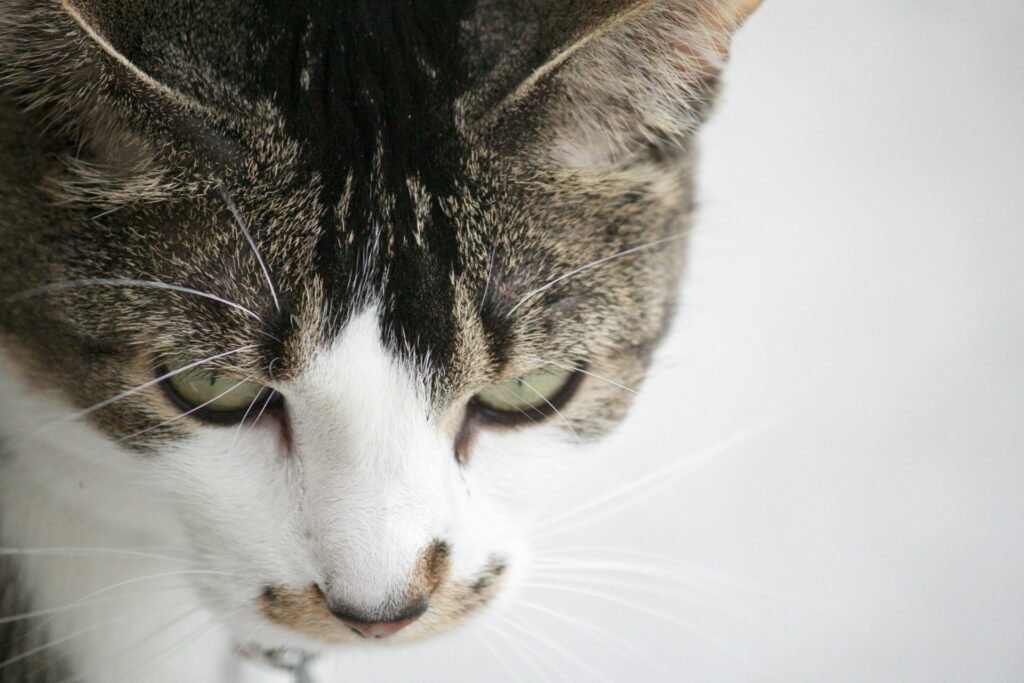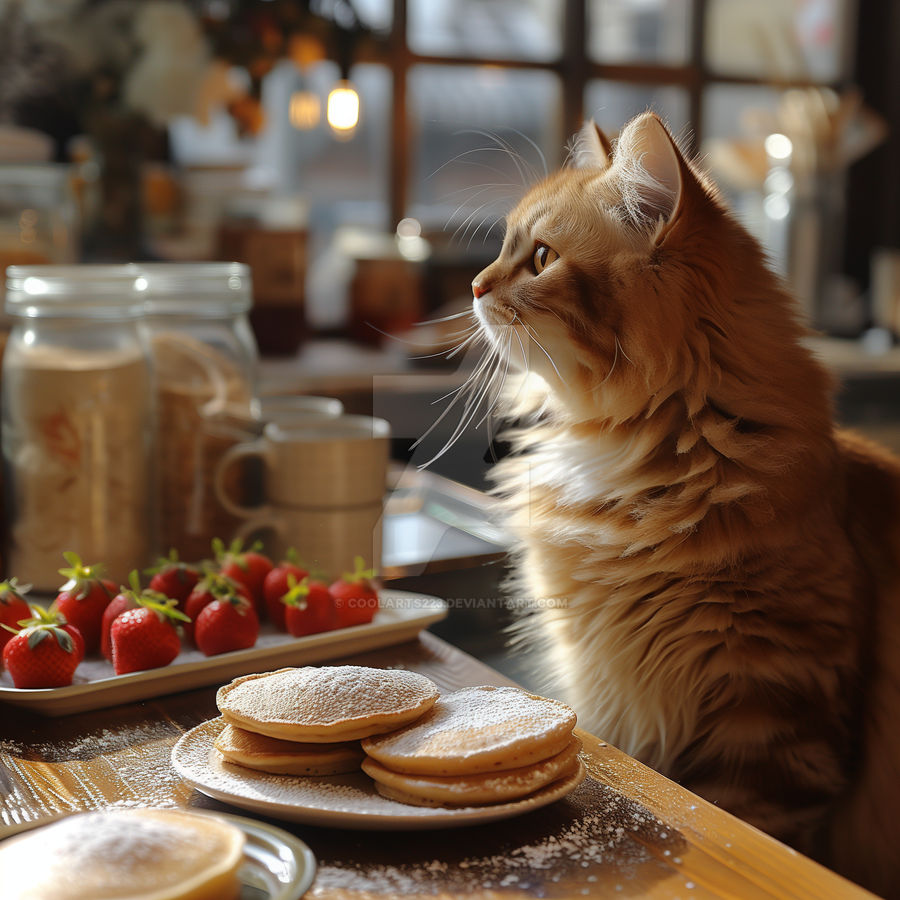TABLE OF CONTENTS
Table of Contents
If your cat suddenly won’t eat, it can be scary. In this post, we’ll walk you through 20 possible reasons why is my cat not eating food and what to do next.
Let’s get into it.
10 Reasons Why Is My Cat Not Eating
Why Is My Cat Not Eating?
In fact, we’re going to cover 10 reasons why my cat is not eating and what to do when your cat won’t eat.
1. Kidney Problems
One reason Why Is My Cat Not Eating is due to kidney problems.
So unfortunately, in older kitties—and I’m talking cats age 7 and older—kidney disease is a common issue.
As vets, we still don’t entirely understand why this happens. We have several working theories. But cats will stop eating when they have kidney disease because it makes them feel nauseous. What happens is their kidneys stop filtering toxins out of the bloodstream. Those toxins build up, and the cat feels sick.
Cats with kidney disease typically still drink water unless they’re very, very, very sick.
They’ll drink lots of water and pee a lot, and they will make lakes in their litter box. So if you’re noticing more drinking and peeing and not eating very much, it could be kidney disease.
2. Gastrointestinal Problems
One reason your Why Is My Cat Not Eating is due to gastrointestinal problems.
- Cats, just like humans, can get GI issues.
- They can get enteritis (inflammation of the gut) because of something they ate.
- They could have intestinal parasites like hookworms, roundworms, and whipworms.
- They could have an inflammatory condition like inflammatory bowel disease.
- They could have a small intestinal bacterial overgrowth, an infection, or even an obstruction or cancer.
They can also get ulcers. - There are a lot of things that can affect the gut of a cat.
- And when the gut is impacted, the cat will not eat.
- Typically these conditions are accompanied by vomiting and/or diarrhea.
3. Medication or Vaccination
Another reason Why Is My Cat Not Eating is because they have been recently vaccinated, or they are on a medication that makes them feel sick.
Vaccination engages the immune system. The way vaccines work in veterinary medicine is they take a tiny piece of the virus and put it in there. Then the immune system gets woken up and mobilized, recognizes the virus, and makes antibodies to it.

Great, right? The only problem is, while this is happening, it can make a cat feel sick.
So if your cat has recently been vaccinated and is not eating, that could be the cause.
These cats also tend to be more tired, and they can sometimes have a fever as well.
Also, if your cat is on a medication, that could cause them to not want to eat.
Because the medication is not fun to take, it may stress them out or make them feel nauseous.
One type of medication that comes to mind is antibiotics; Clavamox, especially, tends to just tear them up.
- That could be a reason why your cat is not eating.
- These tend to resolve fairly quickly on their own.
- They tend to start eating once you stop the medication again.
- And for the vaccination, it tends to get better in a day or two.
4. Stress, Anxiety, or Depression
Another reason why Is My Cat Not Eating is because they are stressed, anxious, or depressed.
Did you know your cat could get depressed? It’s true. If you leave your cat alone for long periods, or maybe your cat has lost a recent friend like another cat or a dog, that can actually cause your cat to be depressed enough to not want to eat.
Also, anxiety or change of any kind can cause them to turn their noses up because they’re too stressed to eat. A very common stress-related disorder in cats is feline interstitial cystitis inflammation in the bladder, and that can cause a cat to not want to eat. So if your cat is anxious, stressed, or depressed, that could be a reason they’re not eating.
5. Change of Food
Another common reason that Why Is My Cat Not Eating is because you’ve changed their food.
Cats just don’t like change. They’re very much like humans in that way. They don’t like when their food is changed, when their stuff is moved, when you move your furniture, when you have visitors, when you introduce new animals to the house, or when you move homes. In particular, if you change their food, they may not like it because the taste, texture, or shape is different. Studies show that cats can develop very strong food preferences even for shapes (some prefer stars, some triangles, and some circles—interesting, right?).
So it could be the fact that you changed the food or you’re trying to change it for a medical condition. If that’s the case, you’re going to want to change the food very slowly, over a week:
- Start with mostly old food and a tiny bit of new food.
- Each day, increase the amount of new food slightly.
- This way, you can trick your cat into accepting the new diet.
6. Slowed Metabolism
Another reason older Why Is My Cat Not Eating as much is because their metabolism has slowed down.
Just like people, cats’ metabolism slows as they age. They may not eat as much as they used to.
As long as your cat is still eating, it’s not usually a problem.
But if your cat has a drastic drop in food consumption or is losing weight, talk to your vet.

7. Pancreatitis
Another reason Why Is My Cat Not Eating is a condition called pancreatitis.
The pancreas is part of the gastrointestinal and endocrine systems.
It makes digestive enzymes and insulin.
Sometimes, the pancreas can get very inflamed, and that’s painful and causes nausea.
Cats with pancreatitis typically:
- Vomit
- Have a fever
- May have diarrhea
- Don’t want to eat
8. Dental Disease
A very common reason Why Is My Cat Not Eating is dental disease.
Cats can get gingivitis and other painful mouth conditions.
One condition is called FORL (feline odontic resorptive lesion), where enamel wears away and cavities form, exposing nerves. Also, conditions like stomatitis and glossitis (inflamed gums) can make eating painful.
Signs of dental issues:
- Bad breath
- Dropping food from the mouth
- Chewing on one side only
- Only eating soft food
9. Risk of Fatty Liver (Hepatic Lipidosis)
Cats cannot go a long time without eating.
If a cat doesn’t eat for more than 4–5 days, they can develop hepatic lipidosis (fatty liver syndrome).
Fat builds up in the liver, and the liver can’t function.
These cats:
- Vomit
- Have diarrhea
- Turn yellow (jaundice)
- Become dangerously ill
So it’s very, very, very important to contact your vet if your cat hasn’t eaten in more than 1–2 days.
10. Your Cat Is Full
And the last reason Why Is My Cat Not Eating is maybe your cat is just full.
We sometimes become helicopter parents, watching everything: poop, energy, and food. If you have multiple cats, one might be eating from another bowl.
If it’s an outdoor cat, it might be eating somewhere else. These cats look healthy, have no other signs, and just might not be hungry.
FAQs about Why Is My Cat Not Eating?
Why Is My Cat Not Eating all of a sudden?
It can be alarming when your cat suddenly refuses food. Often, this points to stress, pain, or even an upset stomach. If it lasts more than a day, it’s best to speak with a vet.
Can a cat skip meals and still be healthy?
No, Cats may occasionally skip a meal, especially if they’re feeling stressed or picky. But if they go without food for more than 24 hours, it could be serious.
Should I worry if my cat is not eating but still drinking water?
Yes, even if your cat is drinking water, a lack of food could still signal an underlying issue like kidney trouble or nausea. It’s not something to ignore.

Is it normal for cats Why Is My Cat Not Eating when they’re sick?
Yes, many cats lose their appetite when they’re not feeling well. Illness, pain, or infection can make them turn their noses up at food.
Can anxiety cause a cat to stop eating?
Definitely. Cats are sensitive creatures. Big changes—like a new home, loud noises, or a new pet—can cause enough stress to affect their appetite.
Could changing my cat’s food make them stop eating?
Absolutely. Cats don’t like sudden changes in their diet. A new smell, texture, or shape might be enough for them to reject their food altogether.
Why Is My Cat Not Eating after Getting Vaccinated?
Mild appetite loss can happen after a vaccination. It’s usually temporary, but if it continues for more than a day or two, check with your vet.
How long is it safe for a cat to go without food?
Cats should never go more than 24–48 hours without eating. Any longer puts them at risk for serious liver issues like hepatic lipidosis.
What should I feed a cat that refuses to eat?
Try warming up their usual food, offering something with a strong smell (like tuna water), or talking to your vet about appetite stimulants.
Could my cat have dental pain that’s Why Is My Cat Not Eating?
Yes, cats with dental issues often avoid eating because it hurts. Look for signs like drooling, pawing at the mouth, or chewing on one side only.
Why Is My Cat Not Eating anything after starting a new medicine, is that normal?
Some medications can upset your cat’s stomach or cause nausea. If you suspect this is the reason, talk to your vet before stopping the meds.
Can older cats lose interest in food?
Older cats often eat less due to a slower metabolism, but it could also point to age-related illnesses like kidney or thyroid issues.
Is vomiting and not eating a serious problem in cats?
Yes, the combo of vomiting and not eating could mean something like pancreatitis or an intestinal blockage. It’s best to get them checked ASAP.
Could my cat be full from eating somewhere else?
If your cat goes outside, they may have eaten from another source. But if it becomes a habit, monitor their weight and overall behavior.
When should I take my cat to the vet for not eating?
If your cat hasn’t eaten for more than 24 hours, especially with other symptoms like vomiting, diarrhea, or fatigue, it’s time to call your vet.
Explore More on EffortWiz
If you’re passionate about giving your pet the best care, don’t miss these helpful reads:
- Are Hypoallergenic Dogs Real? – Learn which dog breeds are less likely to trigger allergies and how to manage pet-related sensitivities.
- Nationwide Pet Insurance Review – Find out if pet insurance is worth it and how to choose the right plan for your furry friend.
- Homemade Dog Food Recipes – Discover nutritious and vet-approved meals you can cook at home to keep your dog healthy.
- Puppy Dog Eyes Explained – Ever wondered why your pup looks at you like that? Here’s the science and meaning behind those adorable eyes.